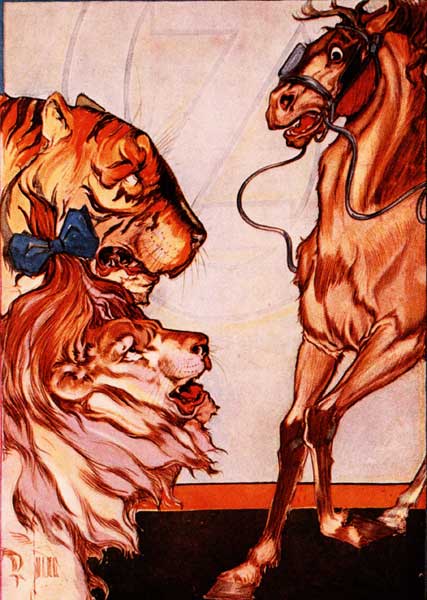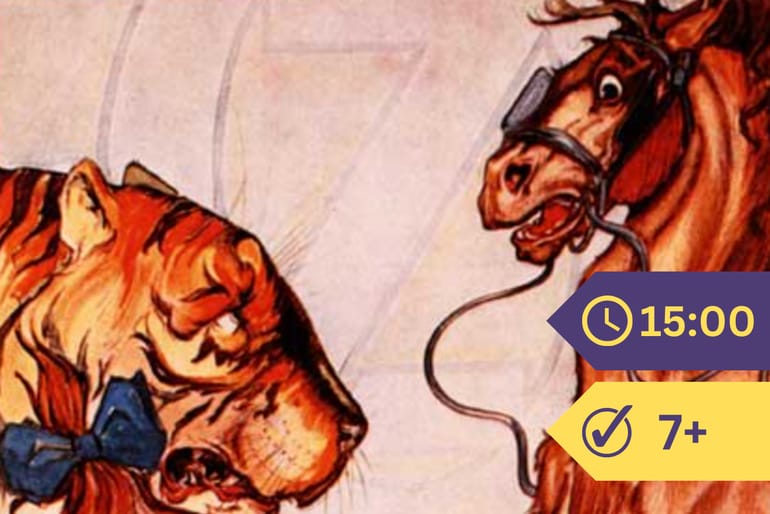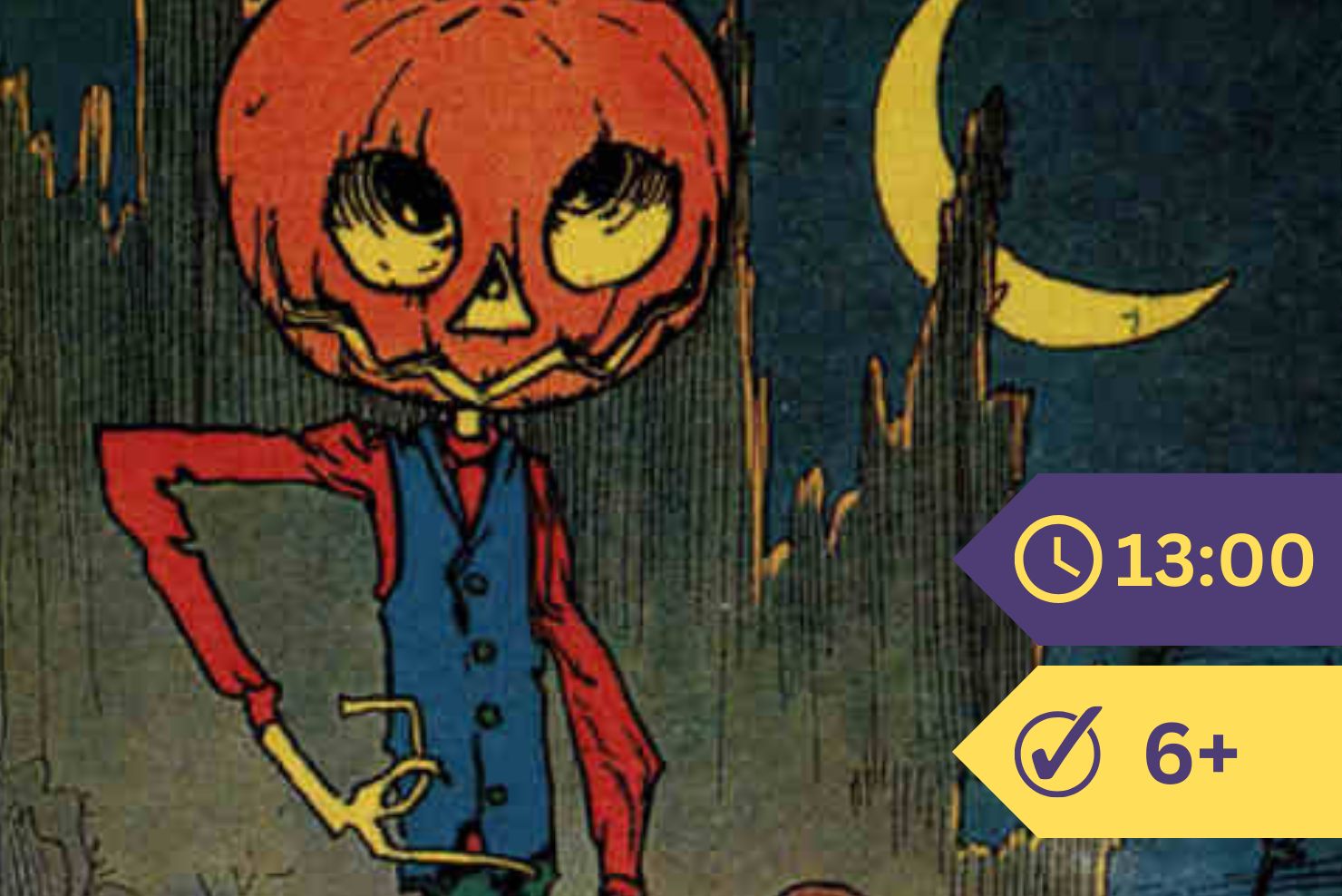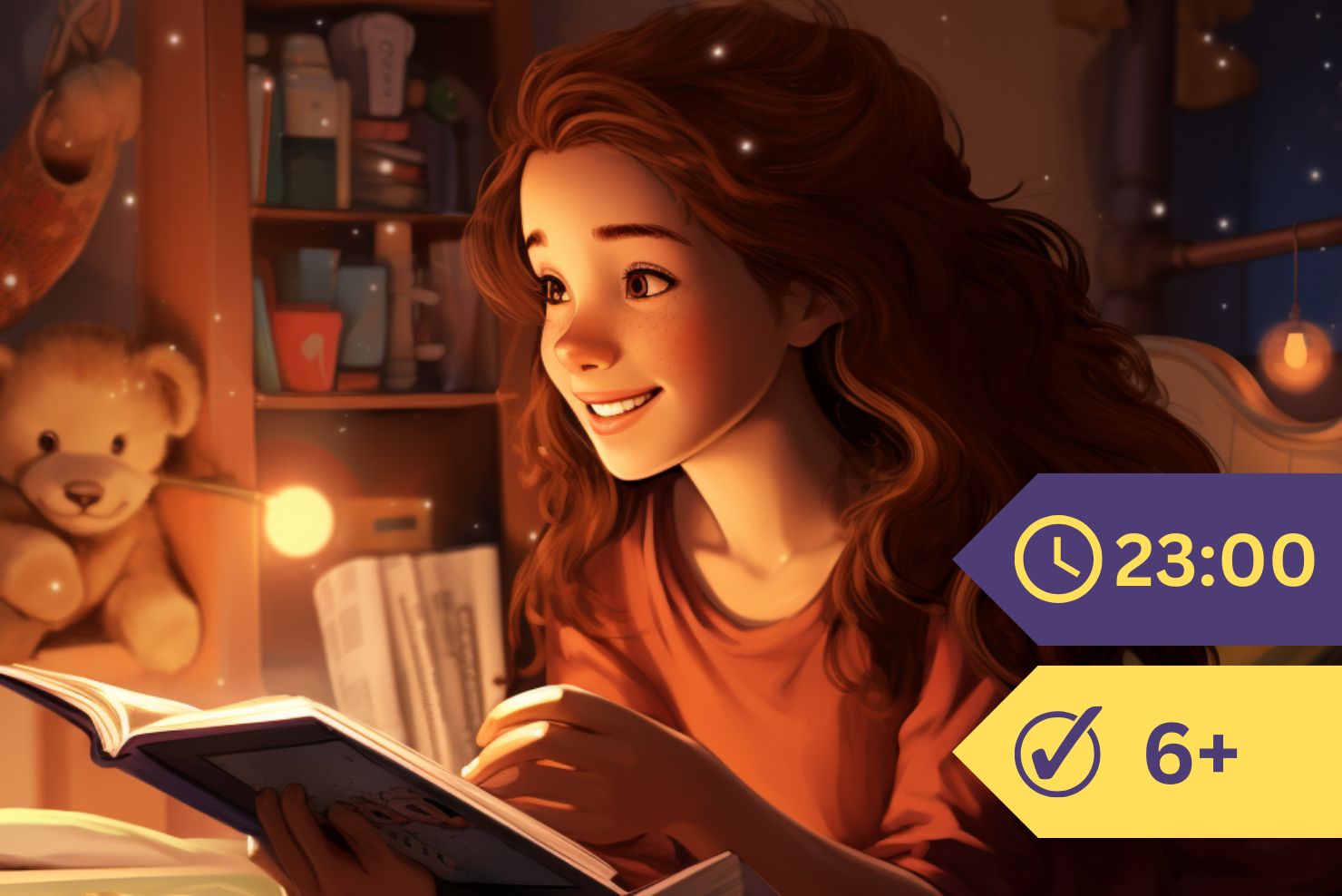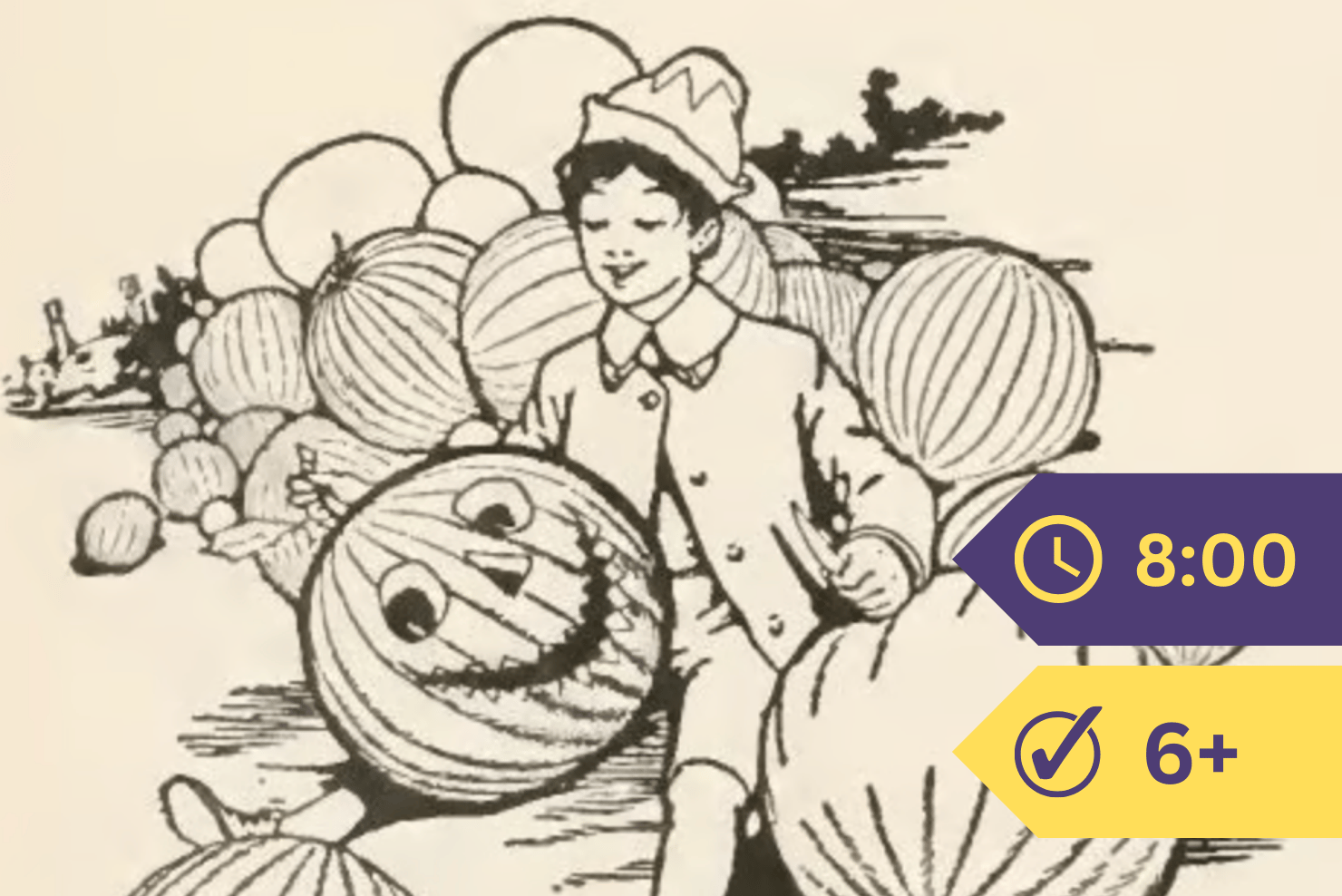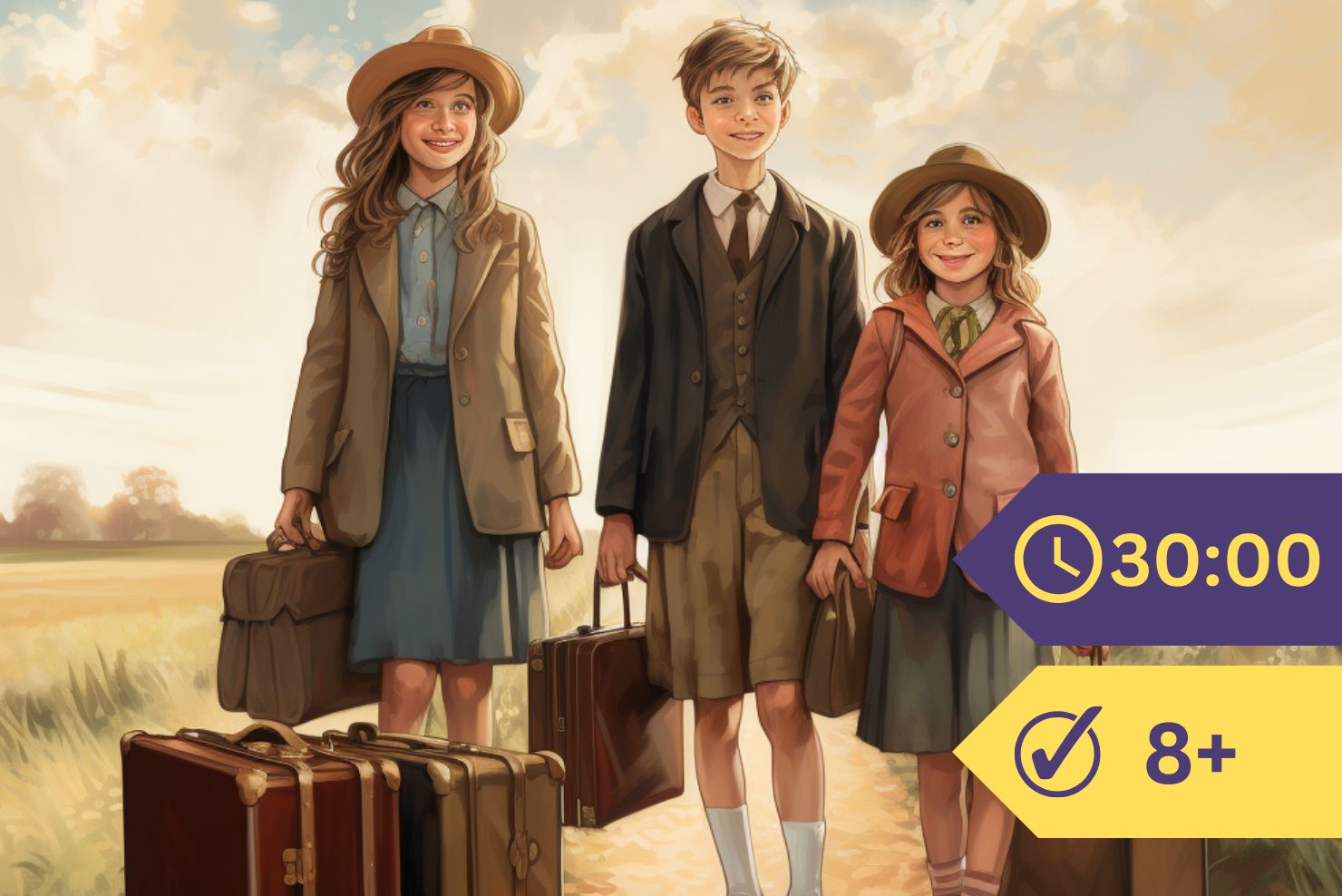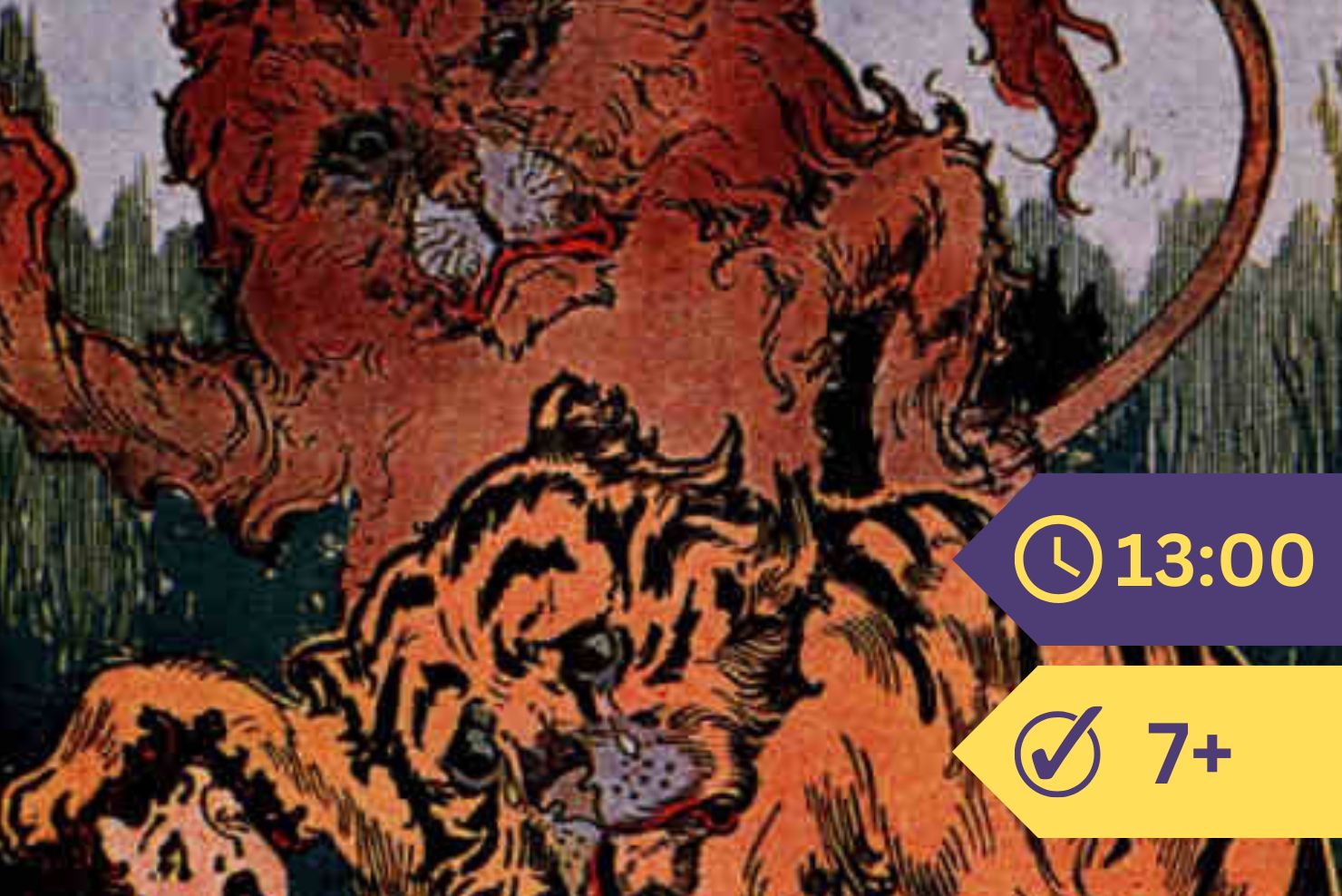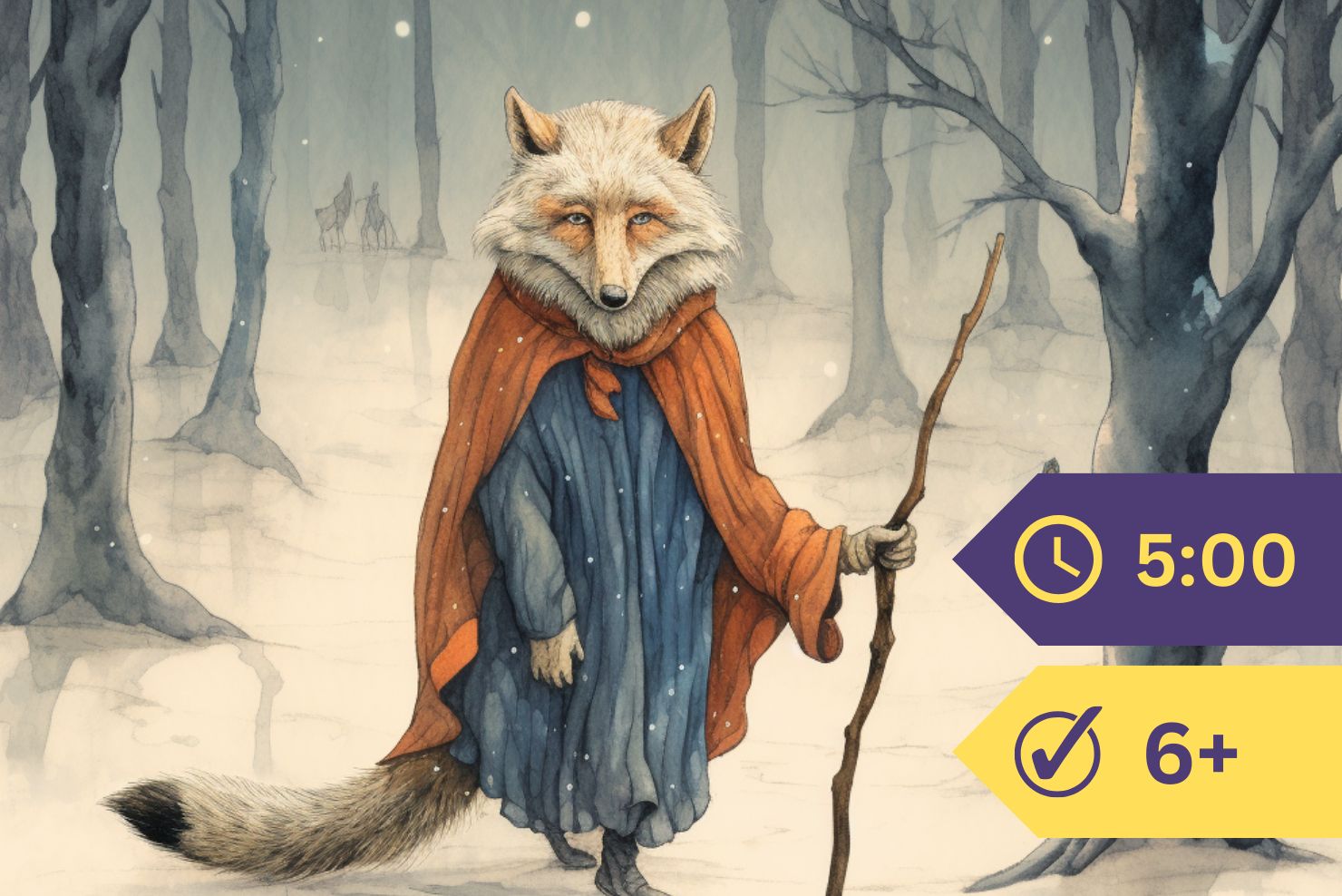Jim the Cab-horse found himself in possession of a large room with a green marble floor and carved marble wainscoting, which was so stately in its appearance that it would have awed anyone else. Jim accepted it as a mere detail, and at his command the attendants gave his coat a good rubbing, combed his mane and tail, and washed his hoofs and fetlocks. Then they told him dinner would be served directly and he replied that they could not serve it too quickly to suit his convenience. First they brought him a steaming bowl of soup, which the horse eyed in dismay.
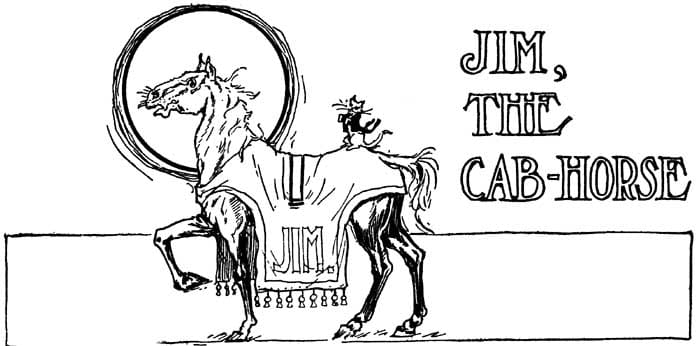
“Take that stuff away!” he commanded. “Do you take me for a salamander?”
They obeyed at once, and next served a fine large turbot on a silver platter, with drawn gravey poured over it.
“Fish!” cried Jim, with a sniff. “Do you take me for a tom-cat? Away with it!”
The servants were a little discouraged, but soon they brought in a great tray containing two dozen nicely roasted quail on toast.
“Well, well!” said the horse, now thoroughly provoked. “Do you take me for a weasel? How stupid and ignorant you are, in the Land of Oz, and what dreadful things you feed upon! Is there nothing that is decent to eat in this palace?”
The trembling servants sent for the Royal Steward, who came in haste and said:
“What would your Highness like for dinner?”
“Highness!” repeated Jim, who was unused to such titles.
“You are at least six feet high, and that is higher than any other animal in this country,” said the Steward.
“Well, my Highness would like some oats,” declared the horse.
“Oats? We have no whole oats,” the Steward replied, with much defference. “But there is any quantity of oatmeal, which we often cook for breakfast. Oatmeal is a breakfast dish,” added the Steward, humbly.
“I’ll make it a dinner dish,” said Jim. “Fetch it on, but don’t cook it, as you value your life.”
You see, the respect shown the worn-out old cab-horse made him a little arrogant, and he forgot he was a guest, never having been treated otherwise than as a servant since the day he was born, until his arrival in the Land of Oz. But the royal attendants did not heed the animal’s ill temper. They soon mixed a tub of oatmeal with a little water, and Jim ate it with much relish.
Then the servants heaped a lot of rugs upon the floor and the old horse slept on the softest bed he had ever known in his life.
In the morning, as soon as it was daylight, he resolved to take a walk and try to find some grass for breakfast; so he ambled calmly through the handsome arch of the doorway, turned the corner of the palace, wherein all seemed asleep, and came face to face with the Sawhorse.
Jim stopped abruptly, being startled and amazed. The Sawhorse stopped at the same time and stared at the other with its queer protruding eyes, which were mere knots in the log that formed its body. The legs of the Sawhorse were four sticks driven into holes bored in the log; its tail was a small branch that had been left by accident and its mouth a place chopped in one end of the body which projected a little and served as a head. The ends of the wooden legs were shod with plates of solid gold, and the saddle of the Princess Ozma, which was of red leather set with sparkling diamonds, was strapped to the clumsy body.
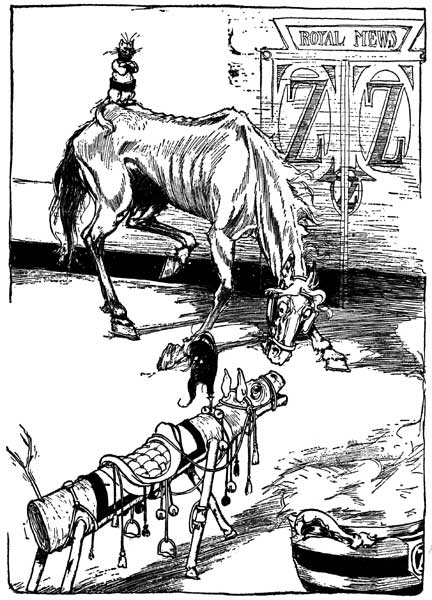
Jim’s eyes stuck out as much as those of the Sawhorse, and he stared at the creature with his ears erect and his long head drawn back until it rested against his arched neck.
In this comical position the two horses circled slowly around each other for a while, each being unable to realize what the singular thing might be which it now beheld for the first time. Then Jim exclaimed:
“For goodness sake, what sort of a being are you?”
“I’m a Sawhorse,” replied the other.
“Oh; I believe I’ve heard of you,” said the cab-horse; “but you are unlike anything that I expected to see.”
“I do not doubt it,” the Sawhorse observed, with a tone of pride. “I am considered quite unusual.”
“You are, indeed. But a rickety wooden thing like you has no right to be alive.”
“I couldn’t help it,” returned the other, rather crestfallen. “Ozma sprinkled me with a magic powder, and I just had to live. I know I’m not much account; but I’m the only horse in all the Land of Oz, so they treat me with great respect.”
“You, a horse!”
“Oh, not a real one, of course. There are no real horses here at all. But I’m a splendid imitation of one.”
Jim gave an indignant neigh.
“Look at me!” he cried. “Behold a real horse!”
The wooden animal gave a start, and then examined the other intently.
“Is it possible that you are a Real Horse?” he murmured.
“Not only possible, but true,” replied Jim, who was gratified by the impression he had created. “It is proved by my fine points. For example, look at the long hairs on my tail, with which I can whisk away the flies.”
“The flies never trouble me,” said the Saw-Horse.
“And notice my great strong teeth, with which I nibble the grass.”
“It is not necessary for me to eat,” observed the Saw-horse.
“Also examine my broad chest, which enables me to draw deep, full breaths,” said Jim, proudly.
“I have no need to breathe,” returned the other.
“No; you miss many pleasures,” remarked the cab-horse, pityingly. “You do not know the relief of brushing away a fly that has bitten you, nor the delight of eating delicious food, nor the satisfaction of drawing a long breath of fresh, pure air. You may be an imitation of a horse, but you’re a mighty poor one.”
“Oh, I cannot hope ever to be like you,” sighed the Sawhorse. “But I am glad to meet at last a Real Horse. You are certainly the most beautiful creature I ever beheld.”
This praise won Jim completely. To be called beautiful was a novelty in his experience. Said he:
“Your chief fault, my friend, is in being made of wood, and that I suppose you cannot help. Real horses, like myself, are made of flesh and blood and bones.”
“I can see the bones all right,” replied the Sawhorse, “and they are admirable and distinct. Also I can see the flesh. But the blood, I suppose, is tucked away inside.”
“Exactly,” said Jim.
“What good is it?” asked the Sawhorse.
Jim did not know, but he would not tell the Sawhorse that.
“If anything cuts me,” he replied, “the blood runs out to show where I am cut. You, poor thing! cannot even bleed when you are hurt.”
“But I am never hurt,” said the Sawhorse. “Once in a while I get broken up some, but I am easily repaired and put in good order again. And I never feel a break or a splinter in the least.”
Jim was almost tempted to envy the wooden horse for being unable to feel pain; but the creature was so absurdly unnatural that he decided he would not change places with it under any circumstances.
“How did you happen to be shod with gold?” he asked.
“Princess Ozma did that,” was the reply; “and it saves my legs from wearing out. We’ve had a good many adventures together, Ozma and I, and she likes me.”
The cab-horse was about to reply when suddenly he gave a start and a neigh of terror and stood trembling like a leaf. For around the corner had come two enormous savage beasts, treading so lightly that they were upon him before he was aware of their presence. Jim was in the act of plunging down the path to escape when the Sawhorse cried out:
“Stop, my brother! Stop, Real Horse! These are friends, and will do you no harm.”
Jim hesitated, eyeing the beasts fearfully. One was an enormous Lion with clear, intelligent eyes, a tawney mane bushy and well kept, and a body like yellow plush. The other was a great Tiger with purple stripes around his lithe body, powerful limbs, and eyes that showed through the half closed lids like coals of fire. The huge forms of these monarchs of the forest and jungle were enough to strike terror to the stoutest heart, and it is no wonder Jim was afraid to face them.
But the Sawhorse introduced the stranger in a calm tone, saying,
“This, noble Horse, is my friend the Cowardly Lion, who is the valiant King of the Forest, but at the same time a faithful vassal of Princess Ozma. And this is the Hungry Tiger, the terror of the jungle, who longs to devour fat babies but is prevented by his conscience from doing so. These royal beasts are both warm friends of little Dorothy and have come to the Emerald City this morning to welcome her to our fairyland.”
Hearing these words Jim resolved to conquer his alarm. He bowed his head with as much dignity as he could muster toward the savage looking beasts, who in return nodded in a friendly way.
“Is not the Real Horse a beautiful animal?” asked the Sawhorse admiringly.
“That is doubtless a matter of taste,” returned the Lion. “In the forest he would be thought ungainly, because his face is stretched out and his neck is uselessly long. His joints, I notice, are swollen and overgrown, and he lacks flesh and is old in years.”
“And dreadfully tough,” added the Hungry Tiger, in a sad voice. “My conscience would never permit me to eat so tough a morsel as the Real Horse.”
“I’m glad of that,” said Jim; “for I, also, have a conscience, and it tells me not to crush in your skull with a blow of my powerful hoof.”
If he thought to frighten the striped beast by such language he was mistaken. The Tiger seemed to smile, and winked one eye slowly.
“You have a good conscience, friend Horse,” it said, “and if you attend to its teachings it will do much to protect you from harm. Some day I will let you try to crush in my skull, and afterward you will know more about tigers than you do now.”
“Any friend of Dorothy,” remarked the Cowardly Lion, “must be our friend, as well. So let us cease this talk of skull crushing and converse upon more pleasant subjects. Have you breakfasted, Sir Horse?”
“Not yet,” replied Jim. “But here is plenty of excellent clover, so if you will excuse me I will eat now.”
“He’s a vegetarian,” remarked the Tiger, as the horse began to munch the clover. “If I could eat grass I would not need a conscience, for nothing could then tempt me to devour babies and lambs.”
Just then Dorothy, who had risen early and heard the voices of the animals, ran out to greet her old friends. She hugged both the Lion and the Tiger with eager delight, but seemed to love the King of Beasts a little better than she did his hungry friend, having known him longer.
By the time they had indulged in a good talk and Dorothy had told them all about the awful earthquake and her recent adventures, the breakfast bell rang from the palace and the little girl went inside to join her human comrades. As she entered the great hall a voice called out, in a rather harsh tone:
“What! are you here again?”
“Yes, I am,” she answered, looking all around to see where the voice came from.
“What brought you back?” was the next question, and Dorothy’s eye rested on an antlered head hanging on the wall just over the fireplace, and caught its lips in the act of moving.
“Good gracious!” she exclaimed. “I thought you were stuffed.”
“So I am,” replied the head. “But once on a time I was part of the Gump, which Ozma sprinkled with the Powder of Life. I was then for a time the Head of the finest Flying Machine that was ever known to exist, and we did many wonderful things. Afterward the Gump was taken apart and I was put back on this wall; but I can still talk when I feel in the mood, which is not often.”

“It’s very strange,” said the girl. “What were you when you were first alive?”
“That I have forgotten,” replied the Gump’s Head, “and I do not think it is of much importance. But here comes Ozma; so I’d better hush up, for the Princess doesn’t like me to chatter since she changed her name from Tip to Ozma.”
Just then the girlish Ruler of Oz opened the door and greeted Dorothy with a good-morning kiss. The little Princess seemed fresh and rosy and in good spirits.
“Breakfast is served, dear,” she said, “and I am hungry. So don’t let us keep it waiting a single minute.”
